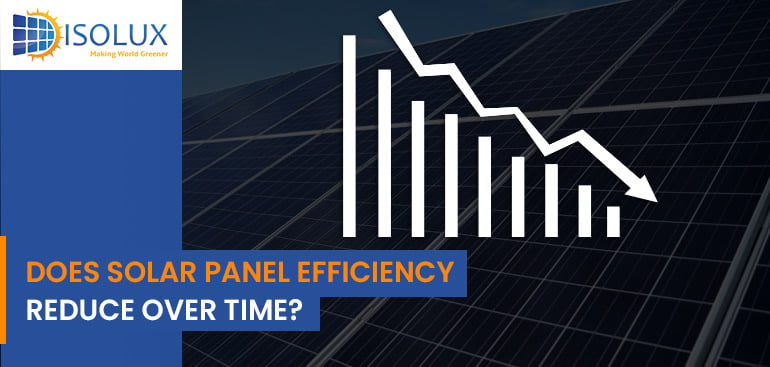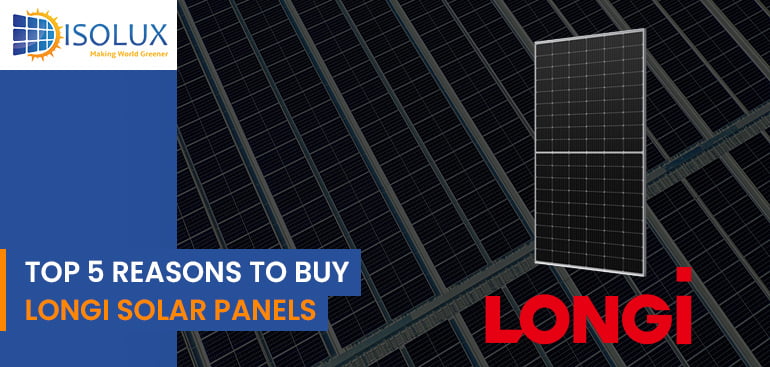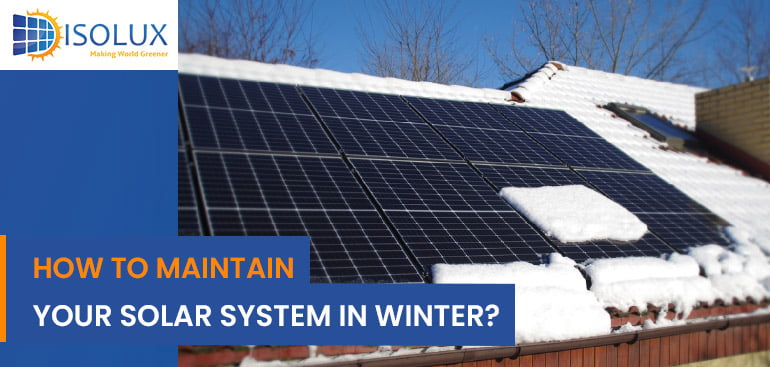As renewable energy sources become increasingly important, many people are turning to solar panels as a way to reduce their carbon footprint and save on energy costs. However, one of the questions that people often ask is how the efficiency of solar panels changes over time. In this article, we’ll explore the factors that impact the efficiency of solar panels and what you can expect as your solar panel age.
Science Behind Solar Panel Efficiency
Solar panels work by converting light into electrical energy using photovoltaic (PV) cells. These cells contain silicon and other materials that generate a current when exposed to sunlight. The efficiency of a solar panel refers to the amount of light energy that is converted into electrical energy.
There are several factors that impact the efficiency of solar panels, including the quality of the materials used, the manufacturing process, and the conditions in which the panels are installed and operated. In general, high-quality panels will have a higher efficiency rating, which means that they will produce more electricity per square foot of panel area.
Impact of Age on Solar Panel Efficiency
One of the factors that can impact the efficiency of solar panels over time is age. As panels age, their performance can decline due to factors such as dust buildup, corrosion, and degradation of the materials used in the panel.
However, it’s important to note that the rate of decline in efficiency will vary depending on the quality of the panel and the conditions in which it’s installed. For example, panels that are installed in areas with high levels of pollution or dust may see a more rapid decline in efficiency compared to panels installed in clean environments.
Maintaining Solar Panel Efficiency Over Time
Fortunately, there are steps that you can take to maintain the efficiency of your solar panels over time. These include regular cleaning and maintenance, proper installation, and avoiding exposure to harsh conditions such as extreme temperatures or corrosive substances.
Another factor that can help to maintain the efficiency of your panels is to choose high-quality panels from a reputable manufacturer. Solar panels that are made from high-quality materials and have a well-designed manufacturing process will typically have a longer lifespan and maintain their efficiency for a longer period of time.
Benefits of Maintaining Solar Panel Efficiency
By taking steps to maintain the efficiency of your solar panels, you can enjoy a number of benefits, including:
Increased energy production: By keeping your panels operating at their highest efficiency, you’ll be able to generate more electricity and save on energy costs.
A smaller carbon footprint: By producing more energy from your solar panels, you’ll be reducing your dependence on fossil fuels and helping to reduce your carbon footprint.
A longer lifespan for your panels: By maintaining the efficiency of your panels, you’ll be able to extend their lifespan and get the most out of your investment.
What Other Factors Can Affect Solar Panel Efficiency?
There are several other factors that can impact the efficiency of solar panels, including:
Temperature: High temperatures can reduce the efficiency of solar panels, as the cells can become overheated and perform less efficiently. On the other hand, lower temperatures can increase efficiency, so it’s important to keep panels within a temperature range that is optimal for performance.
Shade: Shadows cast by trees, buildings, or other structures can significantly reduce the efficiency of solar panels. It’s important to ensure that your panels are installed in a location that is free from shade to maximize their efficiency.
Angle of incidence: The angle at which light hits the panel can affect its efficiency. Panels that are mounted at an angle that is optimized for the latitude of your location will perform better than panels that are mounted flat or at an angle that is not optimized for your location.
Dirt and debris: Dust, dirt, and other debris can build up on the surface of solar panels, reducing their efficiency. Regular cleaning is important to maintain the efficiency of your panels.
Panel orientation: The orientation of your panels can impact their efficiency. Panels that are facing south in the Northern Hemisphere or north in the Southern Hemisphere will typically receive the most sunlight and perform more efficiently.
Panel age: As previously mentioned, the age of a panel can impact its efficiency over time.
Inverter: The inverter that is used to convert the direct current (DC) power generated by the panels into alternating current (AC) power can also impact the efficiency of the system. Choosing a high-quality inverter that is designed to work well with your panels is important for maximizing the efficiency of your system.
How Much Energy Do I Lose Due to Solar Panel Degradation?
The amount of solar production that is lost due to solar panel degradation can vary, depending on several factors such as the type and quality of the panels, the environment in which they are installed, and the maintenance and upkeep of the system.
Typically, the average solar panel will lose about 0.5% of its efficiency per year, and most panels are designed to last for 25-30 years. This means that after 25 years, a panel that was initially rated for 100 watts of power will likely produce about 95 watts of power.
It’s important to note that some high-quality panels may degrade more slowly and maintain a higher level of efficiency over time, while lower-quality panels may degrade more quickly. Regular maintenance and cleaning can also help to reduce the rate of degradation and maintain the efficiency of your panels over time.
Ultimately, the best way to determine how much solar production you will lose due to solar panel degradation is to consult with Isolux Solar, who can assess your specific system and provide an estimate based on your specific circumstances.
Do I Need to Replace My Solar Panels Due to Degradation with Higher Efficiency and Higher Power Panels?
Whether you need to replace your solar panels due to degradation with higher efficiency and higher power panels will depend on several factors, including the age of your panels, the amount of degradation they have experienced, and the amount of energy that you need to generate.
If your panels are relatively new and have not experienced a significant amount of degradation, it may not be necessary to replace them with higher efficiency and higher power panels. However, if your panels are older and have experienced a significant amount of degradation, it may be beneficial to replace them with higher efficiency and higher power panels in order to maintain or increase the amount of energy that you are able to generate.
In some cases, upgrading to higher efficiency and higher power panels can be a cost-effective solution that can offset the cost of replacement over time through increased energy generation. In other cases, it may be more cost-effective to continue using your existing panels and invest in other energy-saving measures instead.
It’s important to consult with Isolux Solar who can assess your specific system and provide recommendations based on your specific circumstances. They can help you to determine whether upgrading to higher efficiency and higher power panels is the best solution for your needs, or if there are other options that may be more cost-effective or better suited to your specific needs.
Conclusion
Solar panels are a great way to reduce your carbon footprint and save on energy costs. However, the efficiency of your panels can decline over time due to factors such as age, dust buildup, and environmental conditions. By taking steps to maintain the efficiency of your panels, you can enjoy increased energy production, a smaller carbon footprint, and a longer lifespan for your solar panels.
Get a free quote from Isolux Solar for residential and commercial solar panel systems.
Read Next Blog:




